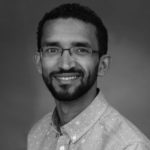Ouma, Stefan is working at the intersections of economic geography, economic sociology, science and technology studies, and agrarian studies. A defining feature of his research has been the ambition to unpack how global economic processes manifest themselves in the socialites, materialities and spatialities of everyday economic life across the Global South. He holds a BA in Human Geography from the University of Erlangen-Nuremberg, an MA in African Development Studies from Bayreuth University and a PhD in Economic Geography from the University of Frankfurt/Main. He is currently, working on the rise of agriculture as an ʺalternative asset classˮ, with a particular focus on financial market-driven investments in agriculture in Tanzania and New Zealand.
Sigler, Thomas is a Lecturer in Human Geography at The University of Queensland in Brisbane, Australia. His research focusses on the interface between cities and globalisation, with emphasis on the connections between cities and the processes and networks within them. His current projects include agglomeration in the Australian resource economy; global city networks; metropolitan governance in Australia; global city property markets; and, sharing and the gig economy. His research has been published in a number of international journals, including Urban Geography, Urban Studies, IJURR, Environment and Planning A, and Geoforum.
Gál, Zoltan is a Professor in Regional Economics at Kaposvar University, Hungary and researcher at the Centre for Economic & Regional Research of the Hungarian Academy of Sciences. His research fields include regional economics, regional finance, international finance, financial & economic geography, innovation management and regional innovation in transition countries as well as EU and global context. He was a visiting scholar at the University of Oxford and the Trinity College Dublin. He holds a dual MA degree from the Central European University (Budapest) and New York State University (Albany) and a PhD in Financial Geography. He was an invited expert at European Commission DG Research (2003-04) and project manager of INTERREG, ESPON and in macro-financial FP7 projects. He received the East-European Publication Prize from the ’Society for the Advancement Socio-Economics (USA)’ for his study on transition banking. He is member of the editoral boards of the Journal of Innovation & Entrepreneurship, Review of Economic Perspectives, Journal of Economic Development, Environment and People and Space & Society.
Knox-Hayes, Janelle is the Lister Brothers Associate Professor of Economic Geography and Planning in the Department of Urban Studies and Planning at MIT. Her research focuses on the ways in which social and environmental systems are governed under changing temporal and spatial scales as a consequence of globalization. She has studied the political and economic interface of financial markets and environmental systems and how individuals and organizations plan and make decisions under conditions of socio-economic uncertainty. Her latest project examines how social values shape sustainable development. Janelle is the author of numerous journal articles, and two books with Oxford University Press, including Saving for Retirement, and The Cultures of Markets: The Political Economy of Climate Governance.
Lai, Karen is Associate Professor at the Department of Geography, Durham University (UK). Her research interests include geographies of money and finance, market formation, service sectors, global city networks and financial centre development. Her recent project examines everyday financialisation through the knowledge networks of financial advisors and consumers. She is current working on two projects regarding the global financial networks of investment banks and law firms, and how FinTech could be reshaping the roles of financial centres. She is on the Executive Committee of the Economic Geography Research Group of the Royal Geographical Society (with Institute of British Geographers), and journal editorial board member of Geoforum and Geography Compass (Economic section).
Pan, Fenghua is an Associate Professor of Economic Geography at the School of Geography in Beijing Normal University. He obtained his PhD degree from Peking University and was a visiting scholar at the University of California, Los Angeles, and University of Hong Kong. Fenghua is the event organizer of the FinGeo network and was the organizer of the first global seminar of FinGeo held in Beijing in August 2016. His current research interests are financial geography, industrial cluster, urban and regional development. His recent papers are published in lead journals including Urban Studies, Geoforum, Urban Geography, Cities et al.
Contel, Fabio has a Master’s Degree (1998) and a PhD (2006) in Human Geography from the University of São Paulo (Brazil). He had a doctoral internship at Friedrich-Schiller-University in Jena (Germany) during his PhD research (2005), where he also worked in 2007 as a guest researcher. Since 2008 he has been full professor at the Department of Geography of the University of São Paulo and focuses on research in urban and economic geography, with special interest in financial geography. He has written widely about the financialization of the Brazilian territory, and published the book “Finance and territory: norms, techniques and banking topology in Brazil” in 2011, which offers a comprehensive view of the Brazilian banking system, from a geographic perspective.
Ewers, Michael is a Senior Policy Analyst at the Social and Economic Survey Research Institute (SESRI) at Qatar University, where he has worked since 2015. Michael received his PhD in 2010 at The Ohio State University, after which he was an Assistant Professor at Texas A&M University. Michael’s research studies processes of international labor mobility, human capital acquisition and regional economic development, with a specialization in the Middle East. Ewers’ work on Islamic financial centers with Jessie Poon has been supported by a U.S. National Science Foundation grant on “Building Knowledge Capital in Specialized Financial Centers: Islamic Wall Streets in Malaysia and Bahrain.”








